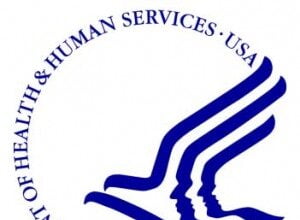 Summary of Proposed IPPS Regulations
Summary of Proposed IPPS Regulations
On April 30, 2014, CMS announced proposed IPPS regulations to become effective January 1, 2015.
 Summary of Proposed IPPS Regulations
Summary of Proposed IPPS Regulations
On April 30, 2014, CMS announced proposed IPPS regulations to become effective January 1, 2015. The ruling covers: Hospital Value-Based Purchasing Program, Hospital Readmissions Reduction Program, Hospital-Acquired Condition Reduction Program, Quality Reporting Programs, and Wage Index – Updated Labor Market Areas.
CMS just announced proposed IPPS regulations to become effective January 1, 2015. These regulations further the goals of the Affordable Care Act: increasing quality outcomes and reducing healthcare spending. These proposed regulations are Medicare specific and, if approved, will be applicable to general acute care and long-term care hospitals.
- The payment rate for general acute care is proposed at 1.3%
- The payment rate for long-term care hospitals is proposed at .8%
According to CMS Administrator, Marilyn Tavenner, “The policies announced today will assist the highly committed professionals working around the clock to deliver the best possible care to Medicare beneficiaries. This proposed rule is geared toward improving hospital performance while creating an environment for improved Medicare beneficiary care and satisfaction.”
5 Aspects of the Proposed IPPS Regulations
The proposed regulation is separated into 5 categories. The first 3 categories are designed to increase quality outcomes and promote patient safety. The 4th category revolves around reporting mechanisms and the 5th category establishes a new wage index.
- Hospital Value-Based Purchasing Program – This program reimburses hospitals based on quality of care. The proposed applicable percentage is 1.5% of the base operating DRG (current rate is 1.25%) and could equate to about $1.4 billion. CMS has been working toward creating a health system based upon value, as perceived by the patient, as we shift from volume to value and quantity to quality. In order to make this transition, CMS has many innovations that provide stepping stones to a value-based healthcare system. A couple of these innovations include bundled payments and Accountable Care Organizations.
- Hospital Readmissions Reduction Program – This program assesses penalties to hospitals with readmission rates (for 5 conditions) higher than average. Prior to 2015, there are 3 conditions in which a hospital can be dinged for readmissions: Acute Myocardial Infarction, Heart Failure, and Pneumonia. CMS is proposing to add two new conditions in 2015: COPD and THA/TKA. The proposed penalty increase is from 2% to 3%.
- Hospital-Acquired Condition Reduction Program – This program assesses penalties to hospitals with high rates of 11 hospital-acquired conditions (Foreign Object Retained after Surgery, Air Embolism, Blood Incompatibility, Stage III and IV Pressure Ulcers, Falls and Trauma, Manifestations of Poor Glycemic Control, Catheter-Associated Urinary Tract Infection, Vascular Catheter-Associated Infection, Surgical Site Infection – following Coronary Artery Bypass Graft, Bariatric Surgery for Obesity, Certain Orthopedic Procedures, and Cardiac Implantable Electronic Devices, Deep Vein Thrombosis, and Iatrogenic Pneumothorax with Venous Catheterization. The proposed penalty is 1%.
- Quality Reporting Programs – The proposal includes seeking alignment between the Medicare Electronic Health Record Incentive Program and the Hospital IQR Program.
- Wage Index – CMS is proposing to use labor market data obtained from the Office of Management and Budget (OMB) using 2010 census information, allowing a 1 year transition for those hospitals that would be negatively affected and a 3 year transition for hospitals that would be deemed rural under the OMB.


 Summary of Proposed IPPS Regulations
Summary of Proposed IPPS Regulations




